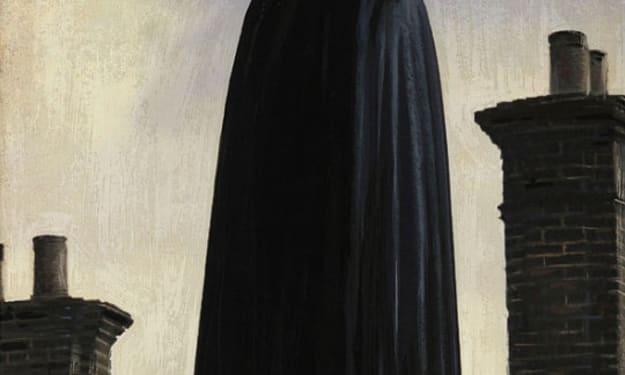What Happens When You Die In Your Dreams?
From Ancient Beliefs to Cutting-Edge Theories, Unveiling the Intriguing Connection Between Dreams, Reality, and Alternate Dimensions

The age-old notion that if you die in your dream, you die in real life has persisted through the ages, whispered ominously from playgrounds to high-rise offices. For some, it's dismissed as an urban myth, while others swear by its truth. So, what's the reality behind this belief?
Dreaming, a nightly venture into the subconscious, is often beyond our control. Nightmares, especially, can leave us shaken, with dreams of death being among the most unsettling. This belief stems from various cultural understandings that dreams hold significance beyond mere imagination, potentially serving as omens or reflections of our deepest fears.
Many cultures view sleep as akin to death or a gateway to higher consciousness, linking dream death to real-life mortality. However, despite its prevalence in folklore, there's no scientific evidence supporting this claim. Dreams, while impactful, aren't directly linked to physical death.
Dreams are widely regarded as products of our subconscious, reflecting emotions and experiences we may not acknowledge while awake. Intense nightmares can evoke physical responses, but they don't pose a threat to our lives. Psychological interpretations suggest that dreams of death often symbolize change or unresolved conflicts rather than impending doom.
Dream interpretation is highly subjective, influenced by personal experiences and cultural beliefs. While dreams may prompt introspection, they don't predict real-life outcomes. Dreams, though mysterious, are understood as complex processes occurring during REM sleep, influenced by various factors including daily experiences and emotions.
Speculation about dreams and parallel universes arises from their surreal nature, suggesting possibilities beyond our waking reality. Theories aligning dreams with quantum physics propose that dreams offer glimpses into alternate realities. Biocentrism, which posits consciousness as fundamental to the universe, suggests that dreams are as real as waking life, blurring the lines between the two.
While some view biocentrism as philosophical rather than scientific, its ambiguity fuels its intrigue. Dreams, according to this view, are not mere reflections but parallel experiences as real as waking life.
In conclusion, the belief that dream death equals real death is rooted in cultural and psychological interpretations rather than scientific evidence. Dreams remain a mysterious aspect of human experience, prompting diverse theories and interpretations, including the intriguing possibility of tapping into parallel universes.
Moving beyond the realm of death in dreams, the link between dreaming and parallel universes opens a door to even more profound speculation about the nature of reality. Dreaming has long fascinated humanity, serving as a canvas for exploring the boundaries of possibility and consciousness.
Freud's groundbreaking work laid the foundation for understanding dreams as windows into the subconscious, revealing hidden desires and conflicts. His emphasis on symbolism in dreams paved the way for further exploration into the deeper meanings behind our nocturnal adventures.
Hall and Van de Castle's Content Analysis study provided valuable insights into the universal themes and symbols present in dreams, suggesting a shared language of the subconscious across cultures.
The Activation-Synthesis Model challenged Freud's psychoanalytic approach, proposing that dreams are the brain's attempt to make sense of random neural activity during REM sleep. This biological perspective shifted the focus from the subconscious to the physiological processes underlying dreaming.
However, the Activation-Synthesis Model doesn't fully explain the surreal nature of dreams, leaving room for alternative interpretations such as biocentrism. According to biocentrism, dreams are not just random firings of neurons but meaningful experiences that parallel waking reality.
Robert Lanza's biocentric theory suggests that consciousness is fundamental to the universe, shaping both our waking and dreaming experiences. In this view, dreams are not separate from reality but alternate cognitive models of existence.
While biocentrism has faced criticism for its lack of empirical evidence, its philosophical implications challenge conventional notions of reality and consciousness. Dreams, according to this perspective, are not confined to the realm of the mind but are integral to our understanding of the universe.
Dreams, then, become more than just fleeting experiences in the night—they are windows into parallel universes, offering glimpses of the infinite possibilities that exist beyond our waking perception.
Intriguingly, the connection between dreams and parallel universes raises questions about the nature of reality and the limitations of human perception. If dreams are indeed windows into alternate dimensions, what does this mean for our understanding of the universe?
The exploration of dreams and parallel universes invites us to reconsider our assumptions about the nature of reality and consciousness. While scientific evidence may be lacking, the philosophical implications of these ideas challenge us to expand our understanding of the world around us.
In conclusion, the link between dreams and parallel universes opens a door to profound philosophical speculation about the nature of reality and consciousness. While empirical evidence may be lacking, the implications of these ideas invite us to reconsider our understanding of the universe and our place within it.
About the Creator
Enjoyed the story? Support the Creator.
Subscribe for free to receive all their stories in your feed. You could also pledge your support or give them a one-off tip, letting them know you appreciate their work.






Comments
There are no comments for this story
Be the first to respond and start the conversation.